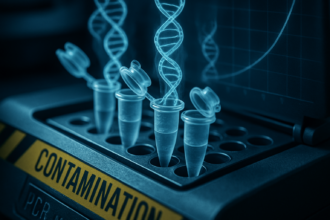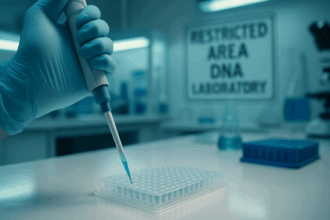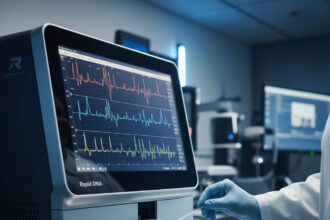Introduction
DNA Day is celebrated every year on April 25th to mark the discovery of DNA’s double helix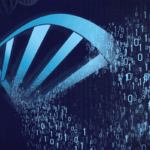
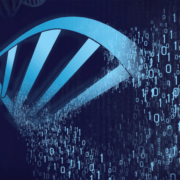
This year is special as we celebrate the 70th anniversary of the discovery of the double helix structure and the 20th anniversary of the completion of the Human Genome Project. The discovery of DNA has revolutionized our understanding of genetics, reproduction, health, and disease, agriculture, and criminal investigation.
The impact of DNA on our lives is profound. It has allowed us to understand the basis of genetic disorders, develop therapies and cures for diseases, and even genetically modify crops to enhance their yield and nutrition. It has also played a critical role in criminal investigations, helping to solve crimes and exonerate the wrongfully accused.
The celebration of DNA Day serves to raise awareness about the importance of genetics and its advancements. It is a reminder that the study of DNA and genetics has the potential to unlock many more mysteries of our world and improve the lives of people around the globe.
Let us celebrate the 70th anniversary of the discovery of the double helix structure and the 20th anniversary of the completion of the Human Genome Project with renewed passion and commitment to unlock the secrets of DNA and genetics.
Learn more about the Human Genome Project.
The History of DNA Research and Discovery
The study of DNA has a rich history, from the discovery of the famous double helix structure by Watson and Crick in 1953 to the modern-day sequencing techniques used in research. DNA, short for deoxyribonucleic acid DNA, or Deoxyribonucleic Acid, is the genetic material found in cells, composed of a double helix structure. It serves as the genetic blueprint for all living organisms. Read Full Definition, is a moleculeA molecule is a fundamental unit of matter composed of two or more atoms that are chemically bonded together. It is the smallest possible amount of a particular substance that retains all of the unique Read Full Definition that contains the genetic instructions used in the development and function of all living organisms.
DNA, or Deoxyribonucleic Acid, is the genetic material found in cells, composed of a double helix structure. It serves as the genetic blueprint for all living organisms. Read Full Definition, is a moleculeA molecule is a fundamental unit of matter composed of two or more atoms that are chemically bonded together. It is the smallest possible amount of a particular substance that retains all of the unique Read Full Definition that contains the genetic instructions used in the development and function of all living organisms.
In 1869, Friedrich Miescher discovered DNA while studying the chemical composition of white blood cells. However, it was in the 1940s that researchers began to understand the structure of DNA. In 1952, Rosalind Franklin used X-ray crystallography to capture an image of the DNA molecule, which helped Watson and Crick develop their model of the double helix structure. Watson and Crick’s discovery of the double helix structure in 1953 was a breakthrough that revolutionized the field of genetics. Their model showed how DNA strands are held together by complementary base pairs (adenine, thymine, guanine, and cytosine) arranged in a specific sequence.
Over the next few decades, researchers continued to study DNA, developing techniques to sequence and manipulate the molecule. In 1977, Frederick Sanger developed the first method for sequencing DNA, which was later improved upon by others. The Human Genome Project, launched in 1990, aimed to sequence the entire human genome, completed in 2003.
Today, DNA sequencing is used in various fields, from medicine to forensics to genealogy. In addition, technological advances have made sequencing faster and more affordable, opening up new avenues for research and discovery.
The Importance of DNA in Understanding Human Health
DNA is the building block of life and contains all the genetic information that makes each of us unique. The study of genetics has enabled us to understand how certain genes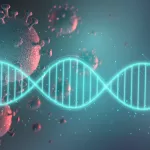 Genes are DNA segments (or RNA in some viruses) that dictate cellular processes, traits, and hereditary information, promoting genetic diversity and evolution in living organisms. Read Full Definition are linked to various diseases and disorders, allowing for early detection and prevention. DNA sequencing has also led to significant advancements in personalized medicine, where we can tailor treatments to an individual’s genetic makeup.
Genes are DNA segments (or RNA in some viruses) that dictate cellular processes, traits, and hereditary information, promoting genetic diversity and evolution in living organisms. Read Full Definition are linked to various diseases and disorders, allowing for early detection and prevention. DNA sequencing has also led to significant advancements in personalized medicine, where we can tailor treatments to an individual’s genetic makeup.
The Latest Breakthroughs in Medical Research Using DNA
Advancements in DNA Technology
The field of genetics has come a long way since the discovery of the double helix structure of DNA. Scientists can now read and interpret the entire human genome, allowing for a better understanding of the genetic basis of diseases. In addition, the development of gene-editing technology like CRISPR-Cas9 has also revolutionized the field of genetics, enabling scientists to make precise"Precise" refers to the degree of closeness or consistency between multiple measurements or values taken under the same conditions. It indicates how well these measurements agree with each other, regardless of whether they are accurate Read Full Definition changes to DNA sequences.
Advancements in DNA Technology
DNA in Criminal Investigation
DNA has become an essential tool in criminal investigations. It can be used to identify perpetrators of crimes, exonerate innocent individuals, and link crimes together. For example 1986, Richard Buckland was convicted of rape and murder in England. DNA evidence
Another example is the Golden State Killer case, where DNA evidence collected from a crime scene was used to identify the perpetrator over 40 years after the crimes were committed. The use of DNA in criminal investigations has transformed the way we think about forensic evidence and has led to significant advancements in criminal justice.
DNA Profiling: A Revolutionary Technology in the Criminal Justice System
DNA in Biotechnology: The Impact of Genetics on Biotechnology
The study of genetics has significantly impacted biotechnology. It has opened up new avenues for developing treatments and therapies for various diseases. The ability to read and interpret the entire human genome has been one of the most significant advancements in biotechnology that has resulted from the study of genetics. Gene therapy, which involves altering a person’s genes to treat or cure disease, has shown promise in treating genetic disorders like sickle cell anemia and cystic fibrosis. It has also led to development of new drugs targeting specific genes or proteins, allowing for more precise and effective treatments.
CRISPR-Cas9 gene-editing technology is another area where genetics has made significant advances in biotechnology. This revolutionary technology allows scientists to make precise changes to DNA sequences, which has opened up new possibilities for treating genetic diseases. The use of CRISPR-Cas9 has already shown promise in treating diseases like muscular dystrophy and Huntington’s disease.
Personalized medicine is also a field where genetics has significantly advanced biotechnology. By understanding a patient’s genetic makeup, doctors can tailor treatments to individual patients, leading to more effective outcomes. This approach has already been used significantly in treating cancer, where personalized medicine has dramatically improved patient outcomes.
Furthermore, the study of genetics has led to significant advancements in the field of synthetic biology. Scientists are working on creating new organisms, materials, and devices using genetic engineering. As a result, synthetic biology can potentially revolutionize a wide range of industries, from medicine to agriculture to energy.
DNA in Agriculture: Advancements and Future Possibilities
The study of genetics has made a significant impact on agriculture. Scientists can now create crops more resistant to pests and diseases and grow in harsh conditions like drought or extreme temperatures. This could change how we produce food and help with food insecurity and climate change.
One example is Bt cotton, which has genes from a bacterium that make a toxin harmful to insects. This means farmers don’t need to use as many chemical pesticides, which is better for the environment and cheaper for them. Another example is genetically modified crops that can grow in harsh conditions. For example, scientists have made rice that can grow in saltwater, which could help where freshwater is scarce.
Scientists have also made crops that have more nutrients. For example, they made rice with a lot of vitamin A, which could help people in developing countries who don’t get enough of it.
Some people are worried about the risks of genetically modified crops, like hurting the environment or making new allergens. However, we must keep researching and regulating to ensure these crops are safe and helpful.
In the future, we could make crops that make their own nitrogen so we don’t need as much fertilizer. We could also make photosynthesis more efficient, which would help us grow more food and be more sustainable.
Genetics and Energy: Innovations and Breakthroughs
Genetics has been crucial in developing the energy field, leading to new ideas that could change how we make and use energy.
Renewable Biofuels: One good use of genetics in energy is making biofuels from renewable things like plant waste or algae. For example, scientists have made biofuels like ethanol or butanol by changing tiny organisms with genetics. These fuels might replace fossil fuels, reduce our need for things that can’t be replaced, and help with climate change.
Better Bioenergy: Looking at living things like bacteria or yeast has given us good ideas about making things like electricity or other kinds of energy. By changing these organisms with genetics, we can make them better at turning organic matter into energy. These things are still being worked on, but they could help us make a better future.
Energy Storage: Genetics can be used to make energy storage better and cheaper. Scientists are considering using genetics to make energy storage things like batteries work better. They’re also trying to use something like enzymes and proteins from living things to make new kinds of batteries that can store more energy for longer. They’re even looking at creating new materials for energy storage, like things made with carbon that comes from things that can be replaced.
So, genetics could make a significant change in the energy industry. We might have new things that help with climate change, reduce our need for things that can’t be replaced, and improve energy storage. If scientists keep working on it, we could see even more good stuff in the future.
Ethical Concerns
While the possibilities for the future of DNA research are exciting, they also raise ethical concerns. One of the primary concerns is the potential for gene editing to be used for non-medical purposes, such as creating “designer babies” or enhancing certain traits.
There are also ethical concerns about the use of synthetic biology and the potential for new organisms to have unintended consequences. DNA data Information in analog or digital form that can be transmitted or processed. Read Full Definition storage raises concerns about privacy and the potential for genetic information to be used without an individual’s consent.
Information in analog or digital form that can be transmitted or processed. Read Full Definition storage raises concerns about privacy and the potential for genetic information to be used without an individual’s consent.
The Ethical Implications of DNA Research
The Future of Genetics
The study of genetics has been a game-changer in the scientific community, opening up a whole new world of possibilities. With each discovery, we gain insight into the fundamental mechanisms of life itself, and we can expect even more significant breakthroughs in the future. Biotechnology has already significantly benefited from genetics, and personalized medicine is poised to revolutionize the healthcare industry. Forensics has also been transformed by genetics, allowing investigators to solve crimes in ways that were impossible before.
The Future of DNA Research: Editing, Manipulating and Creating DNA Sequences





